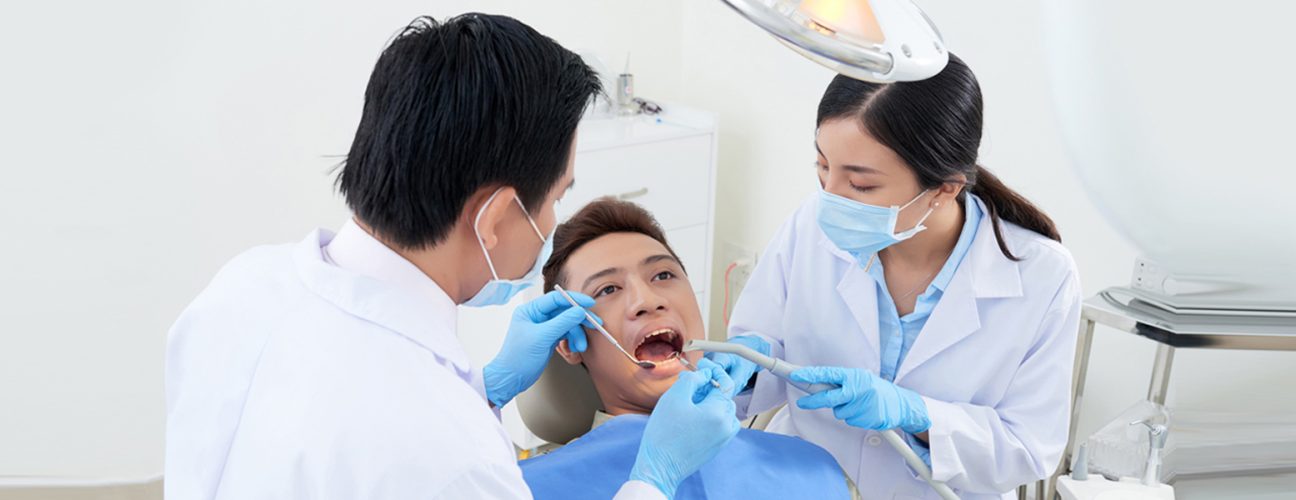Pain Relief Tips After Getting a Dental Implant: What Works Best?
September 1, 2025A successful implant can restore full chewing strength and a confident smile, yet the first few days of healing come with mild soreness and swelling. Managing that discomfort well makes the experience smoother and speeds your return to normal meals. After reviewing current research and everyday clinical advice, this guide lays out practical strategies patients find most helpful, highlighting what to expect and when to seek extra help. As you read along, you’ll discover why convenient access to dental implants near you puts countless patients at ease.
Why Some Discomfort Is Normal
Placing a titanium post requires minor bone adaptation. Inflammation peaks during the first forty-eight hours as your immune system clears debris and starts rebuilding tissue. Feeling tender while biting or brushing is the body’s natural signal to take things slowly. Knowing this timeline reduces worry and keeps you focused on proven comfort measures rather than untested shortcuts.
Day-One Care Routines
Gentle actions right after surgery set the stage for faster healing:
- Cold compresses – Apply an ice pack wrapped in a towel to the cheek for ten-minute intervals during the first evening to limit swelling
- Prescribed medication – Alternate ibuprofen with acetaminophen on a six-hour schedule unless your surgeon advises otherwise
- Soft diet – Choose smoothies, yogurt, or scrambled eggs to avoid pressure on the new post
These simple steps help you sleep better that first night and wake up with less puffiness.
Managing Swelling and Bruising
Mild facial bruising sometimes shows up on day two. To control it:
- Switch from ice to a warm, moist cloth once the initial swelling subsides
- Keep your head elevated on extra pillows while resting
- Stay hydrated; adequate fluids support lymphatic drainage and tissue repair
Within five to seven days, most swelling fades without special treatment beyond these basics.
Recommended Oral Hygiene for Faster Recovery
Keeping the site clean prevents infection and secondary pain:
- Rinse gently with warm saltwater starting twenty-four hours after surgery
- Use a soft-bristle brush on adjacent teeth, avoiding direct scrubbing of the surgical area
- An antibacterial mouthwash may be added after the first week if your provider suggests it
Consistent hygiene lowers bacterial load and helps the gums seal around the healing cap sooner.
Foods That Calm and Nourish
Nutrition influences comfort. Opt for:
- Mashed avocado for healthy fats
- Chilled applesauce to soothe inflamed tissue
- Protein shakes are mixed with room-temperature milk
Avoid seeds, chips, and spicy dishes that could irritate the incision or lodge near sutures.
When to Consult Your Provider
Most aches diminish daily, but call your office if:
- Pain intensifies after day three instead of improving
- Fever exceeds 100.4°F
- Persistent numbness or an unpleasant taste appears
Prompt evaluation ensures minor issues never escalate. Your dentist in L4C 9M7 may adjust antibiotics or check the biting surface to relieve unexpected pressure.
Role of Restorative Checkups
Follow-up visits confirm the implant integrates correctly with the surrounding bone. Digital images assess density changes, and gentle probing verifies gum health. Skipping these appointments can delay crown placement or mask early problems, so mark them on your calendar before leaving the clinic.
Long-Term Comfort Habits
After the initial recovery, protect your investment by adopting these practices:
- Wear a night guard if you clench to avoid micro-fractures around the post
- Schedule professional cleanings every six months with a dentist in Richmond Hill to remove plaque that home tools miss
- Replace powered brush heads every three months to maintain gentle yet effective bristle action
These habits keep both the implant and the surrounding natural teeth in top condition.
Natural Aids Worth Considering
Some patients report added relief from:
- Arnica gel applied externally to lessen bruising
- Chamomile tea rinses for mild antiseptic and anti-inflammatory benefits
- Omega-3 supplements that support soft-tissue repair
Always discuss herbal or nutritional additions with your dentist to avoid interactions with prescribed medicine.
Common Myths Debunked
- “Pain means failure.” Mild soreness is expected; only severe or growing pain signals trouble
- “Removing stitches hurts.” Most modern sutures dissolve on their own or are removed quickly with little sensation
- “You can’t exercise for weeks.” Light walking is fine after day two; just delay heavy lifting until your provider clears you
Clarifying these misconceptions lowers anxiety and encourages realistic expectations.
How Mackenzie Smiles Dentistry Supports Comfortable Healing
The team provides detailed pre- and post-operative packets, 24-hour phone access for urgent concerns, and short-notice review slots if anything feels off. Their goal is simple: make sure every patient feels confident and secure from the moment surgery is scheduled through full restoration.
Quick Reference Pain-Relief Checklist
- Take medication exactly as instructed
- Ice on the first day, warm compress after swelling peaks
- Rinse with saltwater but avoid vigorous swishing
- Eat soft, cool foods rich in protein
- Call promptly if pain worsens or fever develops
Closing Thoughts
Healing from an implant does not have to be difficult. By combining prescribed medication, sensible self-care, and timely professional guidance, most people experience only moderate discomfort that fades quickly. Understanding what to expect—and acting on these proven tips—keeps recovery on track and positions your new tooth for a lifetime of strong function and bright smiles.
